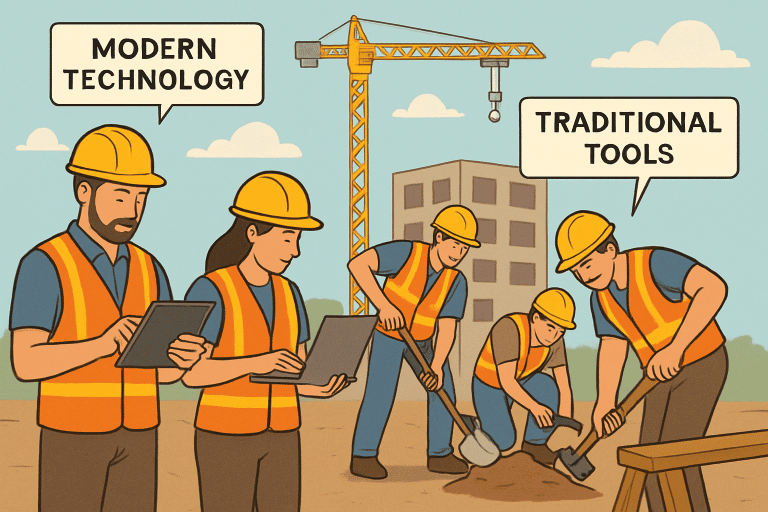
Key Takeaways
What’s Driving Change in Construction Today?
The construction industry is experiencing rapid transformation, fueled by technological advancements, sustainability initiatives, and changing workforce expectations. Modern projects often require a blend of digital skills and classical craftsmanship, challenging new and experienced professionals to adapt. Organizations like ABC Heart of America have provided resources, training, and advocacy for skilled tradespeople navigating this evolving landscape.
The demand for smarter, more energy-efficient buildings has risen in response to regulatory pressures and client expectations. New building codes, sophisticated safety protocols, and the integration of digital project management tools are raising the bar for construction site performance and accuracy. Forward-thinking construction firms now prioritize upskilling and adaptability, recognising that today’s workforce must be as fluent with tablets and software as they are with power tools.
The nature of skilled trades work is shifting dramatically. Electricians take on solar panel and smart system installations, while plumbers frequently handle advanced water management systems and eco-friendly fixtures. Meanwhile, HVAC technicians must keep up with smart thermostats and intricate energy management systems. Even traditional roles, like carpentry and masonry, have been impacted by prefabrication, modular construction, and new installation techniques. The U.S. Bureau of Labor Statistics projects robust growth in many of these fields as older professionals retire—opening doors for a new, tech-savvy generation.

New Skills Needed for the Future
Success in the modern construction industry means blending the tried-and-true with the innovative. Familiarity with Building Information Modeling (BIM) software, digital blueprints, and project scheduling apps is becoming essential. Project managers with a trades background are expected to interpret data analytics and use cloud-based tools to synchronize crews and materials. Strong adaptability, communication, and lifelong curiosity are among the most desirable traits for those seeking to advance their careers.
The Role of Technology and Safety in Daily Work
Jobsite technology now goes far beyond robotics and drones. Wearable safety devices, hazard-reporting apps, and digital compliance tracking systems are standard in many leading firms. These innovations help reduce workplace injuries and drive efficiency, making it easier for crews to follow complex protocols and update project managers instantly. The Occupational Safety and Health Administration (OSHA) has cited significant improvements in jobsite safety thanks to the adoption of real-time alert systems and upgraded training.
Pathways to a Rewarding Career in the Trades
A career in the skilled trades offers diverse entry points and long-term potential. There are routes for nearly every interest, from formal apprenticeships in electrical or plumbing trades to earn-as-you-learn programs in welding, HVAC, or carpentry. Unlike many professions, skilled trades often provide competitive wages, strong benefits, and job security even for those starting without a four-year degree.
Supporting Growth: Training and Apprenticeships
Training and apprenticeships remain cornerstones of the skilled trades. These programs combine classroom instruction with hands-on experience, ensuring new entrants are knowledgeable and work-ready. Many organizations—including unions, trade associations, and local businesses—offer structured apprenticeship options, making it easier for those interested to start without prior connections.
Making the Leap: Tips for Starting a Skilled Trades Career
Further Reading and Resources
Navigating a rewarding trades career means staying informed and connected. Major industry sources provide up-to-date news, project insights, and analysis. Additionally, engaging with local trade associations, subscribing to construction technology newsletters, and joining professional networks or online communities can help you keep pace with emerging trends and career opportunities. Adaptability and continuous learning are your strongest assets as skilled trades evolve.

This post has been published by the admin of our website, responsible for content management, quality checks, and providing valuable information to our users.

